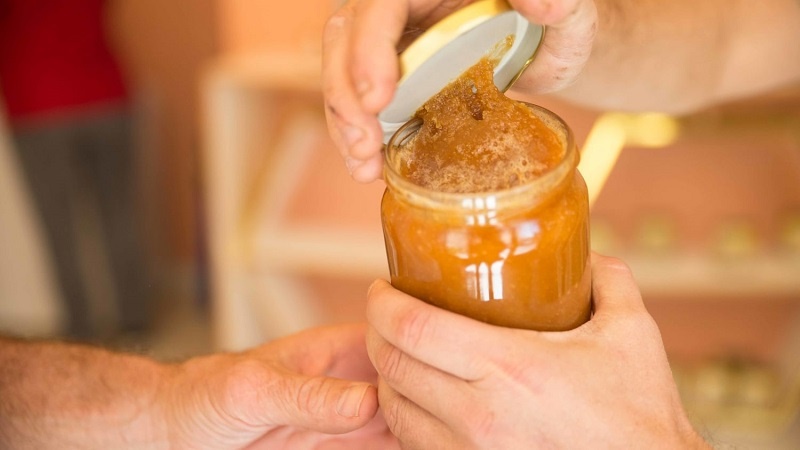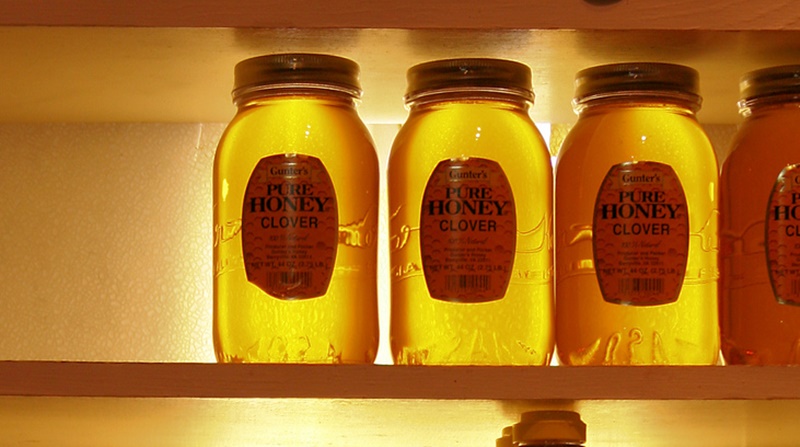1 Honey’s Shelf Life
– Honey will expire if it surpasses the date indicated by the manufacturer on the packaging, or if it shows signs of deterioration.
– When stored properly, honey can last from several years to decades. This applies to both commercial and natural honey.

2 Signs of Honey Expiring
– The main component of honey is sugar, which tends to absorb moisture. When the sugar content absorbs too much water, yeast will start to grow, causing the honey to ferment and turn into alcohol, thus spoiling.
– When honey goes bad, its color will turn dark, and white air bubbles will appear on the surface, emitting a strong, unpleasant odor. If you taste it, you’ll notice a bitter-sour flavor.
– Once honey shows these signs of deterioration, it’s best to discard it to avoid any health risks.

What to Do If Your Honey Crystallizes
– Honey crystallization is normal and not an indication of spoilage. The rate at which honey crystallizes depends on the type of honey and storage conditions.
– Typically, raw natural honey tends to crystallize faster than commercial honey.
– To liquefy crystallized honey, simply open the jar, place it in a bowl of warm water, and stir until the honey dissolves, or microwave it for 15-30 seconds.
– Crystallized honey can re-crystallize, and with each cycle of crystallization and liquefaction, the quality may degrade, so it’s best to use it before it crystallizes to enjoy its optimal quality.

3 Proper Honey Storage
– Store honey in an airtight glass jar, kept in a cool, dark place, not in the refrigerator, to prevent rapid crystallization. Avoid direct sunlight, as this can cause the honey to deteriorate.
– Even with proper storage, honey’s flavor and color may change over time. Therefore, it’s best to consume honey within a reasonable timeframe to enjoy its optimal flavor and benefits.

We hope this article helped clarify the shelf life of honey and provided useful storage tips. If you have any further questions, feel free to reach out to us.
The Secret to Proper Honey Storage: Avoiding the Turn to Toxins
Honey is a natural sweetener with a high calorie content and an abundance of vitamins and amino acids. What sets it apart is that it contains no fat, making it a healthier option and a potential aid in managing certain health conditions. To retain its nutritional benefits, proper storage of honey is essential, treating it with the same care as you would any other perishable food item.
Should You Refrigerate Honey?
Honey is a precious and versatile ingredient, with many wondering if it should be stored in the refrigerator. With its multitude of uses and benefits, it’s important to know how to properly store this liquid gold. Uncover the secrets to honey’s longevity and explore the fascinating world of this sweet treat as we delve into the do’s and don’ts of honey storage.
“The Sweet Benefits of Honey in Cooking”
Honey is a beloved ingredient used by home cooks as a substitute for sugar, adding a tantalizing twist to recipes. But, there’s more to honey than meets the eye. With our expert tips, you can master the art of using honey in your cooking, from marinating meats to baking delectable treats, ensuring your dishes always shine with mouthwatering flavors.





































